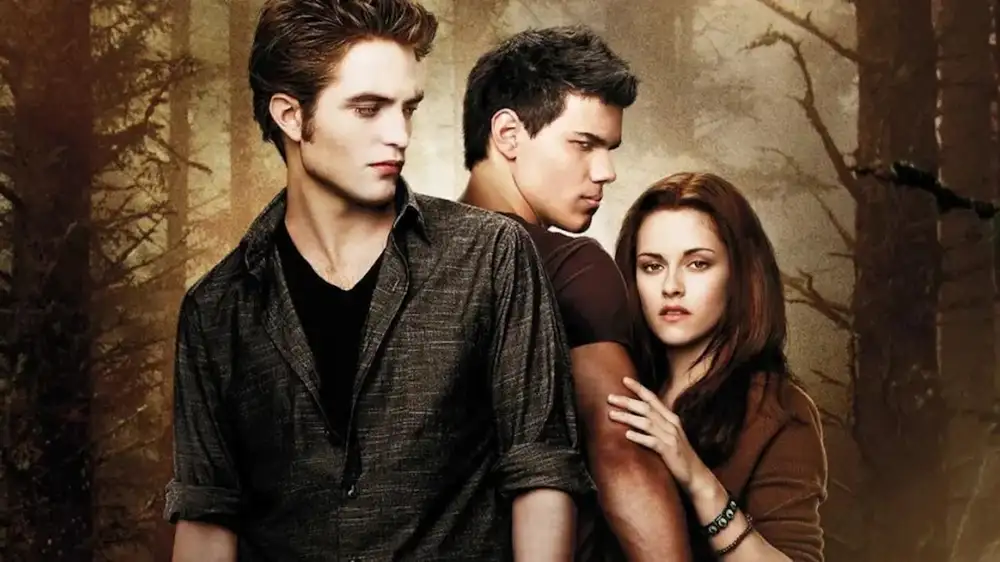It’s only been a minute since the entire Twilight Saga dropped on Netflix, so the fact that the movies are already labeled as “leaving soon” has left some fans irritated – and it’s even sparked a theory.
Every month, the streaming service drops a whole host of new TV shows and movies to binge-watch. June 2025 is marked by some huge returning shows, including Squid Game Season 3 and Ginny & Georgia Season 3, as well as new movies like K.O., Straw, and KPop Demon Hunters
But it’s not just originals getting attention each month. Alongside fresh Netflix releases, a number of library titles – movies and shows licensed from other studios – are also regularly rotated in and out.
While some arrive quietly, others – like Twilight – come and go fast enough to catch viewers off guard. After landing on the streamer on May 1, the vampire saga is already set to leave at the end of June.
Why is Twilight leaving Netflix?
This swift exit might leave you feeling frustrated, but it’s emblematic of the complex and often transient nature of licensing agreements that govern much of Netflix’s content library.
Unlike Netflix Originals, which the company owns outright, many titles on the platform are acquired through licensing deals with studios and distributors. These agreements grant Netflix the rights to stream content for a predetermined period, which can range from a few months to several years.
Once the licensing term expires, the content is removed unless a renewal is negotiated. This model allows Netflix to offer a diverse range of titles each month, but it also means that popular films and series can disappear with little notice.
For context, Twilight’s latest run has been particularly short. All of the movies from the supernatural teen saga were added to the streamer on May 1, 2025, including:
- Twilight (2008)
- The Twilight Saga: New Moon (2009)
- The Twilight Saga: Eclipse (2010)
- The Twilight Saga: Breaking Dawn – Part 1 (2011)
- The Twilight Saga: Breaking Dawn – Part 2 (2012)
However, the “leaving soon” label means they’ll likely be gone by July 1, 2025. This might have seemed abnormal in the past, but as you’ll know well, the streaming landscape has become increasingly competitive in recent years.
Many studios have launched their own streaming services or merged with others, and are reclaiming content to bolster their exclusive offerings.
For instance, Warner Bros. Discovery and Disney have resumed licensing select titles to Netflix, while retaining flagship properties for their platforms. This tug-of-war over rights contributes to the fluctuating availability of content like Twilight.
Netflix co-CEO Ted Sarandos has acknowledged the importance of licensed content in attracting and retaining subscribers, saying in 2023, “I do think that we can add tremendous value when we license content. [But] I’m not positive that it’s reciprocal.”
In other words, Netflix doesn’t license its own content out to other streaming services, making it an outlier in this regard.
Marc Berman, Editor in Chief, The Programming Insider, added to the conversation, “Even as media consumption evolves, the value of licensed programming remains a necessary ingredient in profitability.
“Once upon a time, it was about reaching 100 episodes for any network series, which was the benchmark for off-network syndication. Now, of course, the rise of digital means there are more platforms to license programming, which is financially beneficial.
“As always, the main source of revenue for any series in production is the backend.”
Twilight departure sparks Netflix theory
Although licensing deals are often negotiated months in advance and vary in length depending on studio agreements, fans of the franchise have been left feeling frustrated.
There’s even a theory circulating that legacy titles like Twilight are added in short bursts to create a sense of urgency, therefore bagging them more views.
Taking to Reddit, one asked, “Why is Twilight already coming off Netflix?” To which another replied, “They literally just came back…”
“Ugh they do this all the time it’s so annoying,” added a third, while a fourth chimed in, “They do it because when it comes back people get hyped and re-watch it.” One fan agreed with this theory, stating, “They know their customers, they know everything.”
Another said, “That’s irritating. They always do this. And they’re always in the top 10 when they come back, so I refuse to believe it’s because of low views.”
Others are doing what so many others have been in recent years amid the streaming boom: turning to physical media. After all, a lot of people can’t afford to be subscribing to five or more streaming services at a time.
DVDs and Blu-ray copies are a reliable, cost-effective way to repeat-watch your favorite TV shows and films. “I’m probably just going to buy them at this point because I watch them so often,” said one.
“That’s what I did. Got all of them on Blu-ray for less than $5 on ThriftBooks,” wrote another, while a third added, “Twilight and the show The Magicians leaving Netflix motivated me to start buying all my fave shows and movies on disc. 10/10 recommend.”

 Stellar Blade mods are already out before official PC release date
Stellar Blade mods are already out before official PC release date